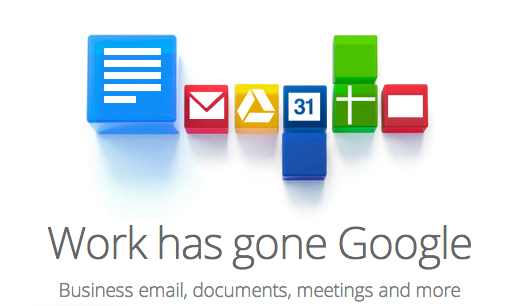We Want Google To Be The Third Half Of Your Brain : < TGIF >
Google's success has exceeded anyone's expectations in under eight years. With each product or service they launch, it becomes more difficult to imagine a world without them.

Google's success has exceeded anyone's expectations in under eight years. With each product or service they launch, it becomes more difficult to imagine a world without them. One of my readers asks: What can other businesses (of any size) learn from what Google has done to achieve this level of success?

Google's success has exceeded anyone's expectations in under eight years. With each product or service they launch, it becomes more difficult to imagine a world without them. One of my readers asks: What can other businesses (of any size) learn from what Google has done to achieve this level of success?
Lesson 1: Customers really are #1
The most important thing that makes Google successful is their focus on users. Even though Google is just like any other company looking to make money, they find their cash in deeper pockets than the average user - advertisers and investors. Ironically, their greatest asset and highest priority isn't advertisers or investors, but users.
How does this make sense? Focusing on the little guy actually indirectly makes advertisers and investors both happy. A bottom's up approach is what has really taken Google to a level that others could not reach. Instead of pleasing advertisers and investors then trying to win over users, they have effectively taken care of all three by only focusing on one.
Lesson 2: Employees are also #1
Google started out with two very bright computer scientists Sergey Brin and Larry Page and have kept their standards high for hiring new employees. Due to this, only the best and brightest minds are hired to work at Google -- or more importantly, to not work for the competitors.
These employees are in high demand so Google does their best to keep morale high. Perks at Google are many -- everything from free food to a dog friendly environment. Not only that, each employee's day is broken up into three parts -- commonly referred to "70/20/10 time".
Only 70% of a Googler's day is to be spent on core search and ads. 20% of their time is for projects directly related to what Google does in some interesting way, and 10% on things that are brand new and not necessarily aligned with Google's core products. This allows the creative juices to flow, and with the number of people working at Google, some pretty interesting ideas must come out of that.
Lesson 3: Give people what they want, not what you think they want
One of Google's strengths is the speed at which they can roll out products. Every time you look something new is cooking -- that's what makes Google such an interesting company to watch. In order for them to operate at these speeds, basic functionality in their products is included -- but they don't try and guess what bells and whistles people want. Each product or service they launch has an associated discussion group the community actively participates in. The suggestions made there are in large part what ultimately decides what additional features get included in the product.
One defining side effect of this approach is a simple, clean, yet powerful product that only contains what users want. One great example of this is Google Talk. When it first came out, there were basically no features. You could type or talk to people, and they could type or talk back. Through slow but deliberate improvements, Google Talk has only functionality that users have specifically requested. Very noticeable is the lack of in-your-face animated emoticons on every second word when talking to your mom (see MSN Messenger).
Lesson 4: Shock and awe
Or at least get a good viral marketing campaign going. This is easier said than done, but when Google decided to give the world free email with a whopping 1GB of storage, people had no choice but to dismiss this as a rumor -- especially since it was announced on April Fools Day. But sure enough, Google pulled through and now has one of the fastest growing (ad supported) email services.
These are only some ways Google has become the success it is, but they all contributed in great part to what we know as Google today.
These are only some ways Google has become the success it is, but they all contributed in great part to what we know as Google today.




Comments
Post a Comment